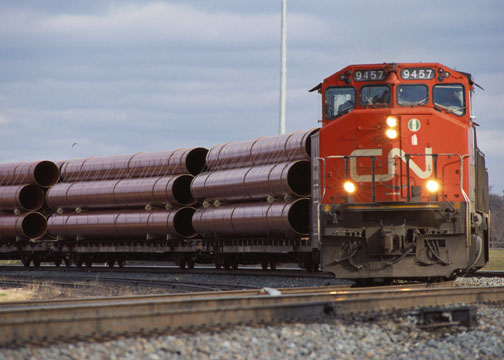Canadian National Railway Co. faces disruption as more than 3,000 workers at the country’s largest railroad are set to strike after a midnight deadline passed without a settlement being reached.
A walkout would potentially crimp shipments of oil, potash, grains and consumer goods even if managers trained to operate trains would blunt the impact at Canadian National. Teamsters Canada Rail Conference said a strike would begin Tuesday if a deal can’t be reached on working conditions and prescription drug benefits.

Although a strike would crimp Canadian National’s cargo volume, the labor action likely wouldn’t last long and the impact on the company’s earnings wouldn’t be meaningful, Allison Landry, an analyst with Credit Suisse Group AG, said in a note to clients before the deadline passed.
“Historically, rail strikes have lasted a few days, and the Canadian government has been quick to step in and implement back-to-work legislation given the significant threat to the economy,” Landry wrote.
Still, the government may have less leverage to push for a resolution over the next couple of weeks because parliament isn’t scheduled to convene until Dec. 5. That could delay the adoption of back-to-work legislation until then.
Canadian Labor Minister Patty Hajdu traveled to Montreal on Monday to meet representatives from both sides. In a Nov. 16 statement, Hajdu said the federal government is monitoring the situation closely and “has faith” in the collective bargaining process.
The Teamsters argue that workers are being forced to operate trains alone from outside the locomotive while hanging on to moving trains with one hand and working a remote-control device in the other, creating a safety hazard. The union is also balking at a lifetime cap on prescription drug coverage.
Canadian National fell 0.2% to close at C$123.76 in Toronto on Monday.









